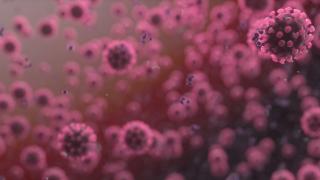As many oncology patients have a compromised immune system, either as a result of the disease or its treatment, they are at an increased risk of infection, including with SARS-CoV-2, the virus that causes COVID-19. With the increase in community-spread cases across the U.S., cancer patients, caregivers and others touched by cancer are disproportionately affected by this pandemic.
As an institution specialized in cancer care, we are on a mission to provide the best possible cancer therapy and protect patients from any infections they may acquire while treating their cancer.
Assessing who is most at risk
The extent of this outbreak is rapidly evolving and risk assessment changes daily, but we believe that some cancer patients are at particularly high risk.
-
Patients with hematologic malignancies such as acute and chronic leukemias, lymphoma and multiple myeloma
-
Patients who have undergone bone marrow transplantation, especially those with chronic graft-versus-host disease requiring treatment to suppress the immune system, are particularly vulnerable
-
Patients undergoing active treatment (chemotherapy, radiation or surgery) are also likely to be at high risk for complications from this infection. Complications will include events such as admission to the ICU, need for ventilator support and poor outcomes
Protocols in place to protect patients
As an NCI-designated Comprehensive Cancer Center, City of Hope has been a leader in cancer research, treatment and prevention. Continuing to be a leader in cancer care during this time means putting strict protocols in place to protect patients, family members and staff.
These measures include:
-
Conducting health screenings on all individuals entering patient care areas
-
Strategizing patient flow
-
Appropriately using personal protective equipment
-
Applying a “no visitor” policy with very limited exceptions
-
Postponing in-person events, suspending business travel for employees and restricting vendor access to campus
As part of these efforts, we also developed detailed initial guidelines for diagnosing and treating all of the most vulnerable patients — including those with hematological malignancies and those who have received bone marrow transplants (BMT). Our excellence in BMT and continued care post-transplant is a particular point of pride for us. City of Hope it is the only cancer center in the nation to exceed bone marrow transplant survival outcomes for 15 consecutive years with more than 15,000 transplants to date.
Putting research into action
As an institution recognized for its research, scientists at City of Hope are also working around the clock on our own version of a COVID-19 vaccine. Previously, our experts developed the Triplex vaccine against cytomegalovirus (CMV), a type of herpes virus, that — similar to the coronavirus — can cause pneumonia and other serious complications in patients with weakened immune systems. In a phase 2 randomized clinical trial, Triplex prevented CMV in patients and led to a 50% lower likelihood to develop health complications related to the virus. Using that data and other immunological research, we aim to develop a COVID-19 vaccine using our unique platform, while working with the Food and Drug Administration (FDA) to develop a path to potentially begin a phase 1 clinical trial in six to eight months.
Our partner in precision medicine, TGen, has developed an FDA-authorized test for people exhibiting symptoms for COVID-19. They are now actively testing to expedite COVID-19 detection. For decades, our unique approach to research and bench-to-bedside techniques has led to numerous breakthrough treatments. City of Hope experts have developed the widely used cancer-fighting drugs Herceptin, Rituxan, Avastin and Erbitux, which have helped hundreds of thousands of patients around the world.
Keeping patients connected
City of Hope cares for patients during cancer treatment, but we don’t stop there. We know that loved ones are a vital part of the healing process, so we are encouraging our patients to stay in contact with their family and friends virtually, through video chat or phone calls. During these unusual times, we are looking into various options to connect with physicians and caregivers remotely as well.
As an institute, we promise to remain vigilant and committed to the safety of our patients and communities at all times.
For most recent COVID-19 updates, visit our website at www.CityofHope.org/patients/for-patients-and-visitors/covid-19-virus-information.
